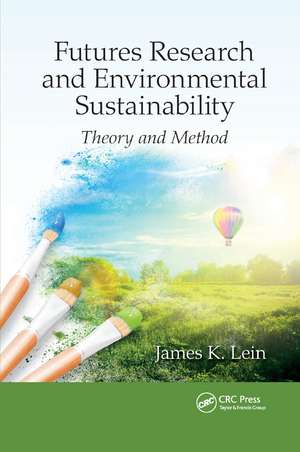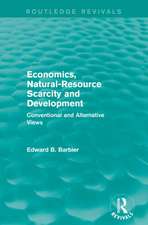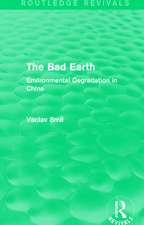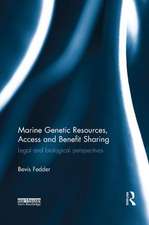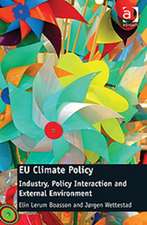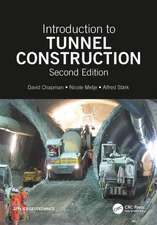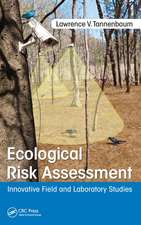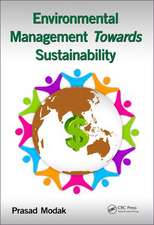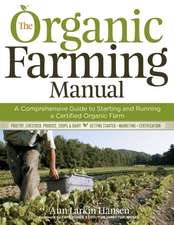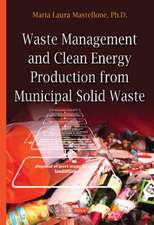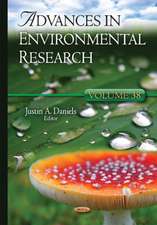Futures Research and Environmental Sustainability: Theory and Method
Autor James K. Leinen Limba Engleză Paperback – 10 dec 2019
| Toate formatele și edițiile | Preț | Express |
|---|---|---|
| Paperback (1) | 469.34 lei 6-8 săpt. | |
| CRC Press – 10 dec 2019 | 469.34 lei 6-8 săpt. | |
| Hardback (1) | 997.90 lei 6-8 săpt. | |
| CRC Press – dec 2016 | 997.90 lei 6-8 săpt. |
Preț: 469.34 lei
Nou
Puncte Express: 704
Preț estimativ în valută:
89.81€ • 93.58$ • 74.36£
89.81€ • 93.58$ • 74.36£
Carte tipărită la comandă
Livrare economică 03-17 aprilie
Preluare comenzi: 021 569.72.76
Specificații
ISBN-13: 9780367872632
ISBN-10: 0367872633
Pagini: 168
Dimensiuni: 156 x 234 x 9 mm
Greutate: 0.45 kg
Ediția:1
Editura: CRC Press
Colecția CRC Press
ISBN-10: 0367872633
Pagini: 168
Dimensiuni: 156 x 234 x 9 mm
Greutate: 0.45 kg
Ediția:1
Editura: CRC Press
Colecția CRC Press
Public țintă
Professional Practice & DevelopmentCuprins
Preface. Introduction. Environmental Sustainability: The Art and Science. Assessing Environmental Sustainability: The Challenge. Prediction, Uncertainty and Environmental Sustainability. Introducing the Future. Methodological Approaches. Geospatial Solutions. Scenarios and Uncertainty. Sustainability Strategies. Index.
Notă biografică
James K. Lein, Department of Geography, Ohio University, USA
Recenzii
"Professor Lein provides an excellent and accessible analysis of fundamental concepts in sustainability and futures research. Consideration for future generations as well as our own is, of course, at the heart of sustainability, but how can we possibly know what possible futures will look like and what the people who will live in those futures will need and want? No one can provide definitive answers to these questions, but Professor Lein gives us some badly needed guidance as to how we can begin to address them. It is a tough ask, but the book walks us through some of the options."
— Stephen Morse, University of Surrey, Guildford, United Kingdom
"A thorough examination of the concepts that underpin sustainability whereby the reader is introduced to the concept of sustainability and the interconnecting principles that influence environmental management through a logical approach. The conceptual diagrams are used to great effectiveness to provide understanding of the linkages between economy, society and the environment; the addition of culture to the pillars of sustainability is an important and interesting addition to the discussion on sustainability. The author brings home the important point that while a sustainable environment does not depend on either the economy or society, neither can exist without a healthy environment. I especially liked the Brontosaurus analogy. This book provides a sensible discussion on sustainability and the how broad subject area of sustainability has become and is a valuable resource for students of environmental science and related disciplines."
— Bernadette O'Regan, University of Limerick, Ireland
"As an urban planner and professor, I found this book to be a brilliant summary of environmental sustainability concepts and - the most valuable – modern assessment methods for visioning, planning and monitoring sustainability. It deepened my understanding and gave me particular ideas and motivation in my daily wo
— Stephen Morse, University of Surrey, Guildford, United Kingdom
"A thorough examination of the concepts that underpin sustainability whereby the reader is introduced to the concept of sustainability and the interconnecting principles that influence environmental management through a logical approach. The conceptual diagrams are used to great effectiveness to provide understanding of the linkages between economy, society and the environment; the addition of culture to the pillars of sustainability is an important and interesting addition to the discussion on sustainability. The author brings home the important point that while a sustainable environment does not depend on either the economy or society, neither can exist without a healthy environment. I especially liked the Brontosaurus analogy. This book provides a sensible discussion on sustainability and the how broad subject area of sustainability has become and is a valuable resource for students of environmental science and related disciplines."
— Bernadette O'Regan, University of Limerick, Ireland
"As an urban planner and professor, I found this book to be a brilliant summary of environmental sustainability concepts and - the most valuable – modern assessment methods for visioning, planning and monitoring sustainability. It deepened my understanding and gave me particular ideas and motivation in my daily wo
Descriere
This book explores the challenges of presenting sustainability as a more actionable or practical concept and identifying approaches that might offer useful assistance in addressing the temporal and spatial representation of sustainability. The underlying premise of this book is that sustainability is a state realized in the future. In that futur
